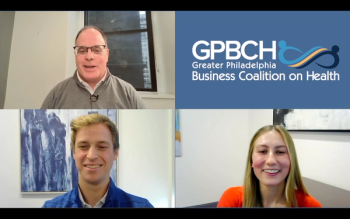
We Need You in the Fight Against Liver Cancer, Join #OctoberIs4Livers 2021

This year’s #OctoberIs4Livers, Global Liver Institute’s (GLI) liver cancer education and awareness campaign, kicked off with a special edition of GLI LIVE featuring Norman "Ned" Sharpless, MD, director of the National Cancer Institute (NCI). You can watch the interview from October 1 on
The GLI LIVE episode with Sharpless was the first #OctoberIs4Livers activity in a series of engaging and informative global activities taking place throughout the month of October to raise awareness about liver cancer and address the many disparities that exist with this disease.
Each week the campaign focuses on a different topic in the liver cancer journey.
Here are 4 effective and easy ways you can spread awareness, be engaged, and do your part to improve the lives of those impacted by liver cancer.
- Use our
social media toolkit : Make some noise and raise awareness about #livercancer and #OctoberIs4livers. This toolkit has been specially developed for our advocacy organization partners. - Sign and share the
Call To Action : Pledge your support to double the five year survival rate for liver cancer in your country. - Empower liver cancer patients, survivors, caregivers and loved ones: Encourage them to use our
Patient Tell Your Story Toolkit to share real stories about life with liver cancer. - Join our
#BossesWearBurgundy social media campaign: Use social media to honor the millions of people worldwide living with liver disease. Post a picture of yourself in burgundy, donate to GLI, and dismantle liver disease stigma.
Liver cancer is a global health threat and one of the few cancer types with increasing incidence and mortality rates. The World Health Organization’s International Agency for Research on Cancer reported an estimated 905,677 new cases and 830,180 deaths from liver cancer in 2020. Liver cancer is the third most common cause of cancer death in the world. In the United States, the American Cancer Society estimates more than 42,000 new cases of and more than 30,000 deaths from liver cancer in 2021. In the United States, the 5-year survival rate was 20% for 2010 to 2016 (American Cancer Society), an increase of 2% from the previous reporting period—but this rate is much too low.
Liver cancer disproportionately impacts most racial and ethnic groups, and there is much need to address these disparities from multiple angles. Wide disparities in liver cancer death rates by sex, race/ethnicity, and state persist, reflecting differences in the prevalence of major risk factors and, to some extent, inequalities in access to high-quality care. This #OctoberIs4Livers campaign is dedicated to creating a path to equity in liver cancers.
#OctoberIs4Livers reaches millions of people worldwide in unique ways never before accomplished for liver cancer. Too often, this highly dangerous cancer receives short shrift in public health and medical provider discussions. Patients and families suffer as a result, with late diagnoses, a dearth of helpful, practical and culturally appropriate information, and fractured treatment options, interventions and continuity of care.
Thank you for joining us during #OctoberIs4Livers.
Newsletter
Stay ahead of policy, cost, and value—subscribe to AJMC for expert insights at the intersection of clinical care and health economics.








